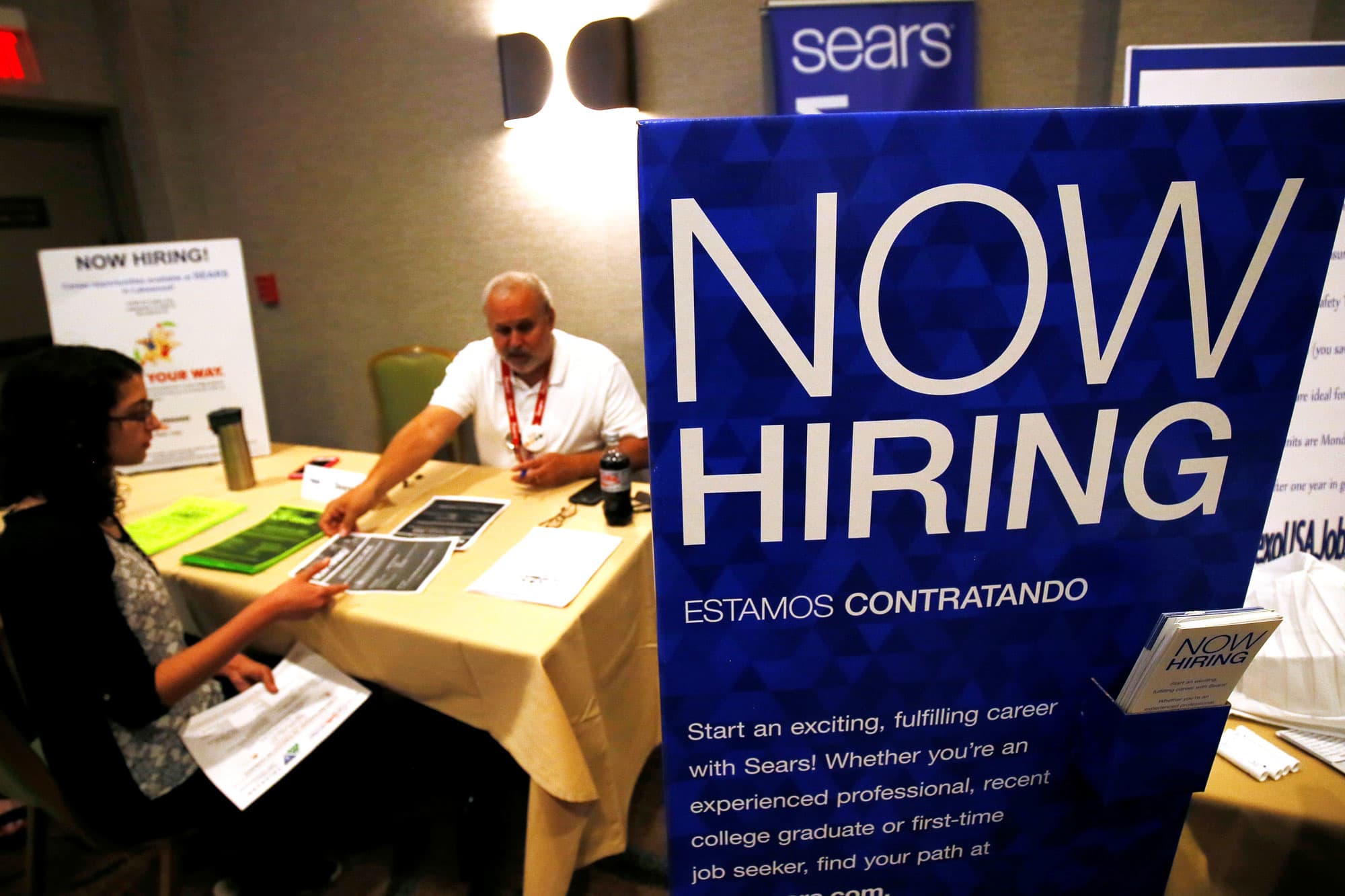Economists expect that the job market remained strong in April, and the economy added 190,000 jobs, about the same as March.
Markets were already on edge heading into the Friday employment report, and economists point to some variables that could impact the headline number.
For one, some economists say Boeing's production slowdown could be a negative for manufacturing jobs, while government hiring of census workers could provide a surprise increase in payrolls in the tens of thousands. Goldman Sachs economists expect 20,000 workers were eliminated due to weather, but they still expect total jobs of 195,000.
Bank of America economists expect an above average jump of 250,000 jobs. A tracker that the bank uses is seeing private payrolls rising 335,000.
Some economists said there could be an upside surprise in the jobs data because of ADP's strong report of 275,000 private sector payrolls in April. But Moody's Analytics chief economist Mark Zandi said the number was suspect, and he expects April jobs from the Bureau of Labor Statistics to be closer to 175,000 to 200,000.
Zandi explained there are factors that could have affected the ADP data that are unusual, including the 50-year low in weekly unemployment claims data in April and the fact that government monthly payroll data has become so volatile. Moody's collaborates with ADP on the monthly report, which sometimes aligns with the government report and sometimes does not.
Zandi did say there could be an unexpected jump in government payrolls if census workers show up in April's number. Government hiring of census workers could ultimately total several hundred thousand, he said.
Stocks and bonds have sold off for the past two sessions, after Federal Reserve Chair Jerome Powell Wednesday suggested the Fed was not considering an interest rate cut, contrary to what some investors believe. Powell said the Fed has seen some improvement in the economy, and the low readings on inflation are likely only transitory, so it's important to see whether the labor market shows continued strength.
Economists expect unemployment remained at 3.8% and wages grew at a 0.3% pace, according to Dow Jones.
James Paulsen, chief investment strategist at Leuthold Group, said the jobs report is actually much more important than even the Fed meeting earlier in the week, since the Fed reiterated that it would be patient and was not ready to either raise or cut interest rates. "The reason it's so much bigger is what [the jobs report] does [could] very much alter what the Fed has to say...That's what's going to form the opinion for the Fed."
Economists are also looking to see if the labor market is signaling better growth.
"It is important because it's our first look at the second quarter. We're looking for a rebound in domestic demand. We've had these highly volatile numbers. Did the government shutdown affect the numbers? We don't know," said Diane Swonk, chief economist at Grant Thornton. "We had this great GDP report in the first quarter that had terrible domestic demand."
Swonk said the economy needs jobs to stay strong so the consumer feels confident and spending improves. "We should have better domestic demand even if manufacturing takes it on the chin because they're draining inventories. You have to have consumer spending pickup and drain your inventories for you," she said.
First quarter GDP grew at a surprising pace of 3.2%. Possibly impacted by weather and the government shutdown, job growth in the first quarter was wildly different from month-to-month though the three-month average was 180,000. In February, there were only 33,000 jobs added, but January's payrolls topped 300,000. Economists expect the second quarter is growing at just under 2%.


